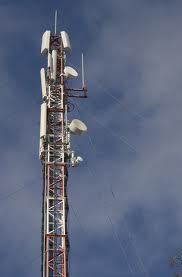Dissatisfied with your current telecom carrier? Need enhanced technology? Unhappy with service outages? Paying too much?
The likely drivers of the search for a telecom carrier are a desire for improved technologies, the quest for better customer service and more reliable tech support, the need for a higher level of management reports and analytics, and the goals of increasing revenues and containing costs. Here are some thoughts on how you may go about evaluating the merits of a carrier.
Technology Provided: Ascertain if the carrier’s technology meets your business requirements, both present and future. Weigh each feature of the carrier network and determine its importance to your needs. Know what you want and what you don’t want.
Think about how well the service will integrate with other technologies you now utilize or anticipate utilizing in the near future. You may wish to explore how readily the platform accommodates the use of mobile devices, which have increasingly become integral to business telecommunications.
Bundled packages of digital phone service, high-speed broadband internet service, PRI over a fiber optic connection and Ethernet network plans can be purchased for better pricing.
To improve productivity and reduce travel costs, determine if a carrier supports efficient web-based and audio conferencing systems.
Customer Service/Tech Support: No matter how strong a carrier’s technology platform may be, if the level of customer service and tech support does not meet your expectations, that carrier can have a deleterious effect on the operation of your business, jeopardize your customer base and hurt your bottom line results. Inquire about the carrier’s customer service philosophy and procedures, find out about the responsiveness of tech support, seek references from similar-size companies to learn of their experience with the carrier and gather information regarding any customer service/tech support fees. Find out what training will be offered so that employees will effectively use the system tools being provided.
Service Reliability: Repeated service outages are disruptive to the smooth operation of any business and have direct and indirect costs that impact profits. Large carriers are required to file outage reports with the FCC and that information can be obtained for your use in evaluating carrier performance. The FCC recently adopted mandatory outage reporting regulations for Voice over Internet Protocol (VoIP) service providers, if that is the type of service you wish to examine. A carrier may have a better record in one locale than another. Check the track record for your location.
Coordinating Installation: An important part of planning the switch to a new carrier is the coordination of the cut-over of service and porting of numbers to be orchestrated by the telephone carrier in conjunction with the company that services your telephone equipment. Ask for a copy of the carrier’s planning document and share it with your telephone system manager to be certain that the plan makes sense and meets your timeline. Particularly if you are moving your business to a new location, you cannot afford to be without telephone service for hours or days.
Reporting Systems: Managing a business and evaluating the effectiveness of systems and staff requires good, timely information. Review the reports that a carrier will provide, assess their value to your operation, how they can help you better manage the business and generate revenue and/or contain costs.
Pricing and Financial Impact: Installation and periodic contractual costs have to meet your budget constraints and should not be an impediment to profitability. Compare pricing plans for the various services you are considering, e.g., local and long-distance calling. Question any fees you may incur for discontinuing a service prior to the end of a contract period. Then prepare a cost/benefit economic analysis for the proposals of each carrier you consider and compare the outcomes.
Before signing a contract, gain a full understanding of all of its terms and make certain they conform to the sales proposal you received. Remember, the carrier needs your business just as much as you need the carrier’s service and employ that in your negotiations.
Audit: After you’ve established service with a new carrier, don’t be shy about auditing invoices, comparing costs to contracted terms and evaluating if the savings you anticipated have materialized. There are consulting firms that, for a fee, will provide such auditing services to assure that you’re being charged correctly.

In sum, hire a telecom carrier much as you would a new employee. Review the candidate’s resume (sales proposal), analyze skill sets (technology), evaluate personality (customer service and tech support), check references (contact other users of the service) and after you’ve made the hire, conduct a periodic performance review (audit).
For more information about telephone system solutions please visit tsmsouth.com

Recent Comments